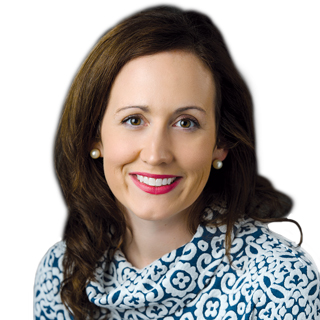
Fall is in the air. Crisp leaves, pumpkin everything, cool nights on the porch with little ones, and annual fall festivals that are not complete without the standard cake walk.
I missed my kids’ school Fall Festival this year. First time ever.
I had it perfectly planned to arrive home Friday, October 5, after attending meetings. The airline, however, had alternate plans. Cancellations, delays and no pilot.
Enter Kathryn my 10-year-old daughter, focused, determined and always aware. She still managed to walk through the doors at home with a smile on her face — and a carrot cake, my favorite.
No gloating or bragging, just simply setting her treasure on the kitchen counter.
She waited — she was purposeful — for the cake walk attendees to place the carrot cake up as an option … Then she proceeded to stay the course until the prize was in hand.
The boys, on the other hand, burst through the door, sweaty and smelly messes, telling me horrible stories about each other’s behavior. The most atrocious was easily about Isaac, who had proceeded to ask other parents at the festival for money when Dad refused to purchase him his third icee beverage.
Back to Kathryn. Love that child and her determination. She literally takes the cake. Always.
Determined. Focused. Purposeful. And Humble.
Who takes yours?
Some considerations for your therapy team:
- Who still appreciates their therapy roots? Who understands evidenced-based practice specific to individual patient clinical presentations?
- Who is participating in collaborative coding and engagement for the Minimum Data Set? Specifically, is your SLP engaged for coding Sections K, B, and C? Are your PTs and OTs engaged in coding “usual” for Section GG item sets?
- Are your therapists actively engaged in analysis of your communities’ quality measure ratings followed by implementation of clinical programming to promote the highest level of clinical care?
- What are your therapists doing to promote safe and effective discharge planning and return to community?
Furthermore, consider how analysis of data, for the five additional publicly reported SNF QRP measures (effective,10-24-2018) on Nursing Home Compare can help you determine the impact of your therapy teams.
The update areas include the following:
- Assessment-based measures:
- Percent of Residents or Patients in a SNF that develop new or worsened pressure ulcers (National Quality Forum #0678)
- Percentage of residents or patients whose activities of daily living and thinking skills were assessed and related goals were included in their treatment plan (NQF #2631)
- Percentage of SNF patients who experience one or more falls with major injury during their SNF stay (NQF #0674)
- Claims-based measures:
- Medicare Spending Per Beneficiary (MSPB) for patients in SNFs
- Rate of successful return to home or community from a SNF
The data for these areas can speak for themselves.
Remember: Assessing this via the loudest and most outspoken team members may not get you the answer you need.
Recognition of employees and your therapy team is important.
And we all know that the strongest team members are not often the most vocal. They may be the quietest, working behind the scenes, but focused always with a plan in mind, and a smile on their face.
One such member on my team recently sent me the following R.G. Moon quote, which sums this up just about perfectly…
“There’s something about a woman with a loud mind that sits in silence, smiling knowing she can crush you with the truth.”
As we all prepare and initiate purposeful planning for our rehab teams in the coming year the time is now to ask yourself.
Who takes the cake?
Upon analysis of the data, who takes the cake and crushes it?
Renee Kinder, MS, CCC-SLP, RAC-CT, is Director of Clinical Education for Encore Rehabilitation and is the Silver Award winner in the 2018 American Society of Business Publishing Editors competition for the Upper Midwest Region in the Service/How To Blogs category. Additionally, she serves as Gerontology Professional Development Manager for the American Speech Language Hearing Association’s (ASHA) gerontology special interest group, is a member of the University of Kentucky College of Medicine community faculty, and is an advisor to the American Medical Association’s Relative Value Update Committee (RUC) Health Care Professionals Advisory Committee (HCPAC).




